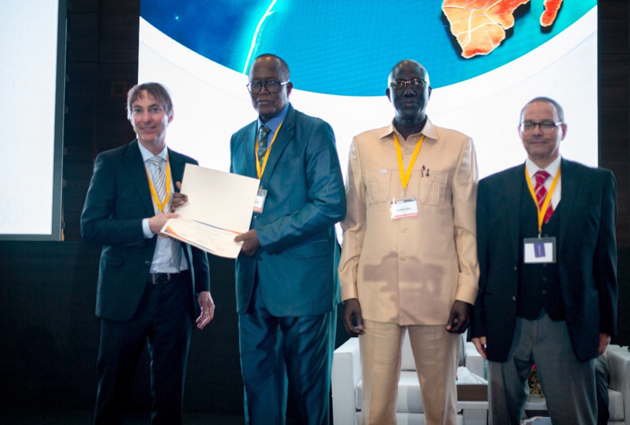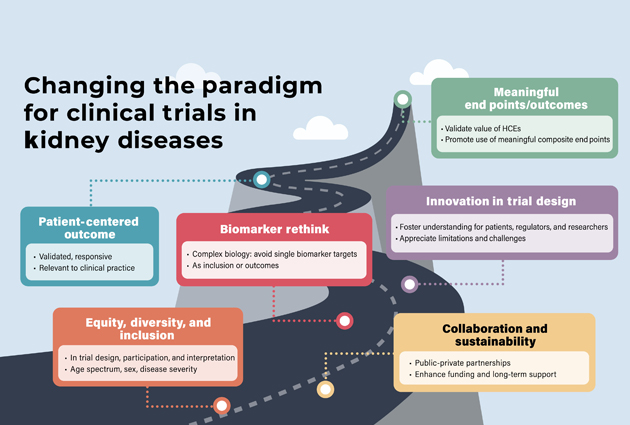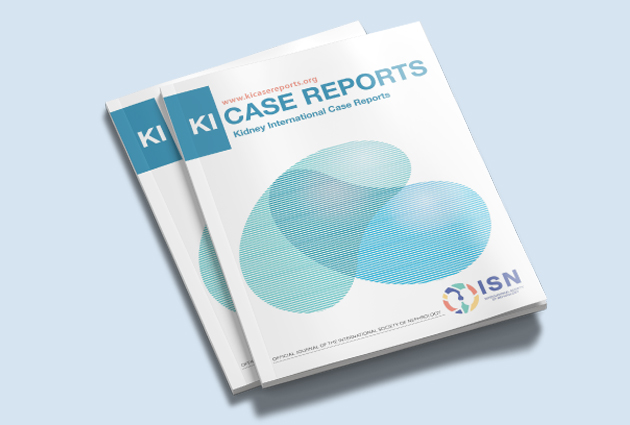Metabolic Acidosis in CKD – to Treat or Not to Treat? Still an Unresolved Mystery
ISN-ACT Global Trials Focus contributor Sara Ksiazek summarizes the design and outcomes of one of the ISN-ACT Global Trials Focus’s latest trial selections.
The “Trial of the Month” is available in several languages, now including German. Read all global trial selections from the ISN-ACT initiative here. In addition, in the ISN ‘Guide for Everyone‘ series, selected clinical trials are demystified for the layperson.
VALOR-CKD: A Multicenter, Randomized, Double-blind Placebo-controlled Trial Evaluating Veverimer in Slowing Progression of CKD in Patients with Metabolic Acidosis
Tangri et al, JASN, 2024 Mar;35(3):311-20.
Summary
In this phase 3 trial, the novel hydrochloric acid binder, veverimer, was evaluated in patients with chronic kidney disease (CKD, eGFR 20-40ml/min/1.73m2) and metabolic acidosis (serum bicarbonate 12-20mEq/L) for the slowing of CKD progression.
Part A of this study consisted of a 4-8 week active treatment run-in period where all participants (n=2198) received veverimer, and those who showed an increase in serum bicarbonate by ≥ 4 mEq/L or a serum bicarbonate ≥ 22 mEq/L progressed to the next stage.
In Part B of the study, 1480 participants were randomized to either veverimer (n=741) or placebo (n=739) and followed up for a median of 2.2 years. At baseline, the mean eGFR was 29.2 ± 6.3ml/min/1.73m², and the mean serum bicarbonate was 17.5 ± 1.4 mEq/L. After the active run-in period, the mean serum bicarbonate level rose to 23.4 ± 2.0 mEq/L.
After three months of randomization, the patients in the veverimer group had a serum bicarbonate of 22.0 ± 3.0 mEq/l and the placebo group of 20.9 ± 3.3 mEq/L, resulting in a difference of 1.1 mEq/L (P < 0.001) between the groups. This difference remained constant throughout the two-year follow-up. The primary outcome of CKD progression, defined as the development of ESKD (kidney transplantation or maintenance dialysis), a sustained decline in eGFR of ≥ 40% from baseline, or death due to kidney failure, was similar in both groups with an occurrence of 149/741(9.9%) and 148/739 (9.6%) in the veverimer and placebo groups respectively (HR 0.99; 95% CI, 0.8 to 1.2; P=0.90). The incidence of adverse events did not differ between the two groups, including gastrointestinal events or impact on blood pressure. The trial was terminated early in May 2022 due to administrative reasons.
Commentary
Metabolic acidosis is a common complication of CKD, but well-powered trials have not shown that treating it slows CKD progression. VALOR-CKD, conducted across 320 sites in 35 countries, is one of the largest trials investigating metabolic acidosis in CKD.
However, despite the deliberately designed run-in period where only patients meeting the responder criteria could continue to randomization, the study failed to demonstrate the efficacy of vevermier in slowing CKD progression. Unexpectedly, the serum bicarbonate level in the veverimer group dropped by 1.41 mEq/L after randomization, and the difference between the veverimer and placebo groups post-randomization withdrawal turned out to be smaller than anticipated, with only 1mEq/L difference in serum bicarbonate. This small difference led to negative trial results regarding the primary outcome with no change between the groups. Moreover, the trial was terminated early, but it is unlikely that a longer duration of follow-up would have changed the primary or secondary findings.
Nevertheless, the authors should be commended for publishing the negative trial results as it led to the 2024 KDIGO clinical practice guidelines downgrading their recommendations for the treatment of metabolic acidosis in CKD to a practice point, suggesting treatment to keep serum bicarbonate levels > 18 mEq/L.
For now, we remain without evidence that treatment of metabolic acidosis improves kidney function. Future trials should target a greater serum bicarbonate separation between the active and treatment groups and consider a longer run-in period to ensure chronicity of metabolic acidosis.








